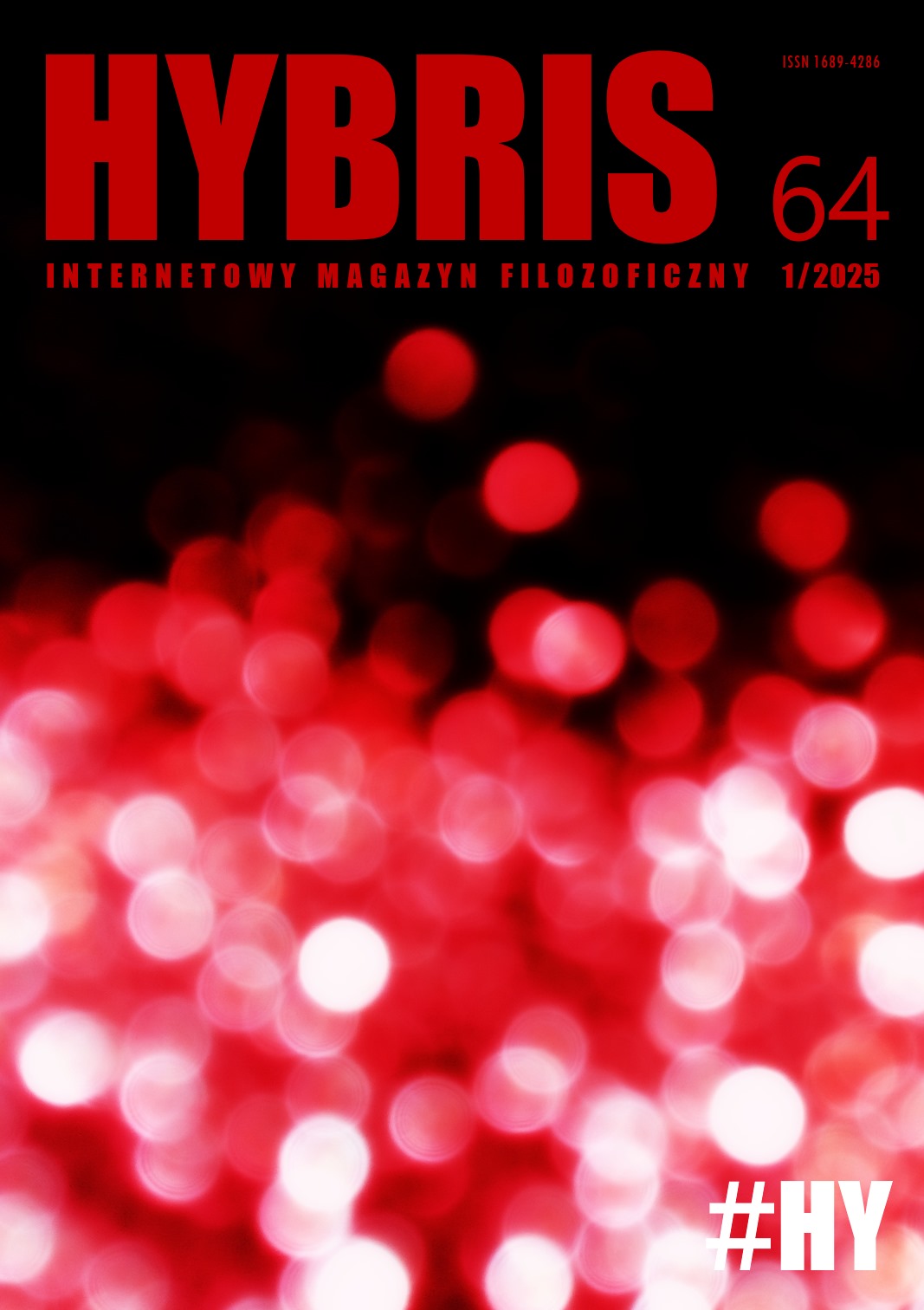Architecture, body, climate. The pleasure of pursuing change
DOI:
https://doi.org/10.18778/1689-4286.64.03Keywords:
climate, architecture, multisensory, pleasure, somaesthetics, everyday aestheticsAbstract
Does the quest to reduce architectures negative impact on the climate have to involve “designing for discomfort”? In this text, I consider whether a turn toward pleasurable experiences in the realm of everyday life can also be a tool for pursuing change. As I argue, this is possible through meaningful architecture that perpetuates a sense of local identity andoffers a multi-sensory experience. These can affect the well-being and health of a society – aspects that I believe are necessary to address the health of the environment and the planet. I base my reflections on research in the fields of everyday aesthetics and somaesthetics, and demonstrate their practical dimension through the analysis and interpretation of a selected project. The case in question is a house in São Paulo, which serves as an inspiration to look for similar but more generally accessible architectural forms. In the end, the examples described turn out to have not only features that affect multisensory perception and well-being, but use natural materials and can affect a favorable microclimate.
References
Barber, D.A. (2022). Po komforcie, https://www.autoportret.pl/artykuly/po-komforcie/ [dostęp: 25.05.2025].
View in Google Scholar
Berleant, A. (2010). Sensibility and Sense: The Aesthetic Transformation of the Human World. Exeter: Imprint Academic.
View in Google Scholar
Bińczyk, E. (2018). Epoka człowieka. Retoryka i marazm antropocenu. Warszawa: PWN.
View in Google Scholar
Carlson, C. (2020). University of Stuttgart builds prototype thatched Alpine hut, https://www.dezeen.com/2020/09/26/university-stuttgart-thatched-alpine-hut-skinover-reed/ [dostęp: 25.05.2025].
View in Google Scholar
Daudén, J. (2019). Brazilian Houses: 9 Examples of Residential Vernacular Architecture, https://www.archdaily.com/909366/brazilian-houses-9-examples-of-residential-vernacular-architecture [dostęp: 25.05.2025].
View in Google Scholar
Franco, J.T. (2013). Estudiantes japoneses diseñan y construyen una casa de paja calefaccionada por compost, https://www.archdaily.cl/cl/02-272489/estudiantes-japoneses-disenan-y-construyen-una-casa-de-paja-calefaccionada-por-compost [dostęp: 20.04.2025].
View in Google Scholar
Gutierrez, M.P. (2020). The Northwestern Amazon malocas: Craft now and then. Journal of Material Culture, 25(1), 3–35, https://doi.org/10.1177/1359183519836141 [dostęp: 20.04.2025].
View in Google Scholar
DOI: https://doi.org/10.1177/1359183519836141
James, W. (1976). The Experience of Activity. W: F. Bowers, I.K. Skrupskelis (red.), Essays in Radical Empiricism (82–88). Cambridge, MA: Harvard University Press.
View in Google Scholar
Jurga, J. (2023). Szałas na hałas. O tworzeniu poczucia bezpieczeństwa za pomocą zmysłów w domu, przestrzeni i Kosmosie. Gdańsk: Wydawnictwo Nieśpieszne.
View in Google Scholar
Jurga, J. (2024). Zakredytowaliśmy się na mieszkania na życie, a w weekend z nich uciekamy, bo nie da się tam odpocząć, https://www.wysokieobcasy.pl/zyclepiej/7,181616,31353327,zakredytowalismy-sie-na-mieszkania-na-zycie-a-w-weekend-z-nich.html [dostęp: 25.05.2025].
View in Google Scholar
Kępiński, K., Krężlik, A. (2022). Antropocen, architektura i inne niebezpieczeństwa. W: K. Kępiński, A. Krężlik (red.), Antropocen. W stronę architektury regenerującej (27–46). Warszawa: Narodowy Instytut Architektury I Urbanistyki.
View in Google Scholar
Levin, D. M. (1988). The Opening of Vision: Nihilism and the Postmodern Situation. Londyn: Routledge.
View in Google Scholar
Levin, D. (1993). Decline and Fall – Ocularcentrism in Heidegger’s Reading of the History of Metaphysics. W: D. Levin (red.), Modernity and the Hegemony of Vision (186–217). Berkeley: University of California Press, https://doi.org/10.1525/9780520912991-008
View in Google Scholar
DOI: https://doi.org/10.1525/9780520912991-008
Mairs, J. (2016). Campana brothers use palm fibre to give hairy texture to São Paulo house, https://www.dezeen.com/2016/07/19/fernando-humberto-campana-brothers-palm-fibre-house-sao-paulo-brazil-hairy-texture/ [dostęp: 25.05.2025].
View in Google Scholar
Merleau-Ponty, M. (1996). Widzialne i niewidzialne, przeł. M. Kowalska. Warszawa: Fundacja Aletheia.
View in Google Scholar
Orr, D. (2002). The Nature of Design: Ecology, Culture, and Human Intention. Nowy Jork: Oxford University Press, https://doi.org/10.1093/oso/9780195148558.001.0001 [dostęp: 20.04.2025].
View in Google Scholar
DOI: https://doi.org/10.1093/oso/9780195148558.001.0001
Pallasmaa, J. (2012). Oczy skóry. Kraków: Instytut Architektury.
View in Google Scholar
Pallasmaa, J. (2021). Architektura i troska, https://www.autoportret.pl/artykuly/architektura-i-troska/ [dostęp: 25.05.2025].
View in Google Scholar
Pérez-Gómez, A. (2016). Attunement: Architectural Meaning after the Crisis of Modern Science. Cambridge, MA: The MIT Press, https://doi.org/10.7551/mitpress/10703.001.0001 [dostęp: 20.04.2025].
View in Google Scholar
DOI: https://doi.org/10.7551/mitpress/10703.001.0001
Saito, Y. (2010). Rola estetyki w kształtowaniu świata. Sztuka i Filozofia, 37, 71–89.
View in Google Scholar
Saito, Y. (2022). Aesthetics of Care: Practice in Everyday Life. Londyn: Bloomsbury Publishing, https://doi.org/10.5040/9781350134225
View in Google Scholar
DOI: https://doi.org/10.5040/9781350134225
Shusterman, R. (2008). Body Consciousness: A Philosophy of Mindfulness and Somaesthetics. Cambridge: Cambridge University Press, https://doi.org/10.1017/CBO9780511802829
View in Google Scholar
DOI: https://doi.org/10.1017/CBO9780511802829
Shusterman, R. (2011). Somaesthetics and architecture: A critical option. W: Architecture in the Age of Empire (283–299). Weimar: Bauhaus University.
View in Google Scholar
Shusterman, R. (2012). Thinking through the Body: Essays in Somaesthetics. Cambridge: Cambridge University Press, https://doi.org/10.1017/CBO9781139094030 [dostęp: 20.04.2025].
View in Google Scholar
DOI: https://doi.org/10.1017/CBO9781139094030
Soper, K. (2008). Alternative hedonism, cultural theory and the role of aesthetic revisioning. Cultural Studies, 22, 567–587, https://doi.org/10.1080/09502380802245829
View in Google Scholar
DOI: https://doi.org/10.1080/09502380802245829
Wahira, M. (2022). Consuming information research, https://askwonder.com/research/consuming-information-research-gngr6owc2?h=c2ea0077b81b60170524893115bbc6b9942f9ca675882d97751358022ed812cf [dostęp: 22.05.2025].
View in Google Scholar
Watson, J. (2019). Lo-TEK: Design by Radical Indigenism. Köln: Taschen.
View in Google Scholar
Downloads
Published
How to Cite
Issue
Section
License

This work is licensed under a Creative Commons Attribution-NonCommercial-NoDerivatives 4.0 International License.






